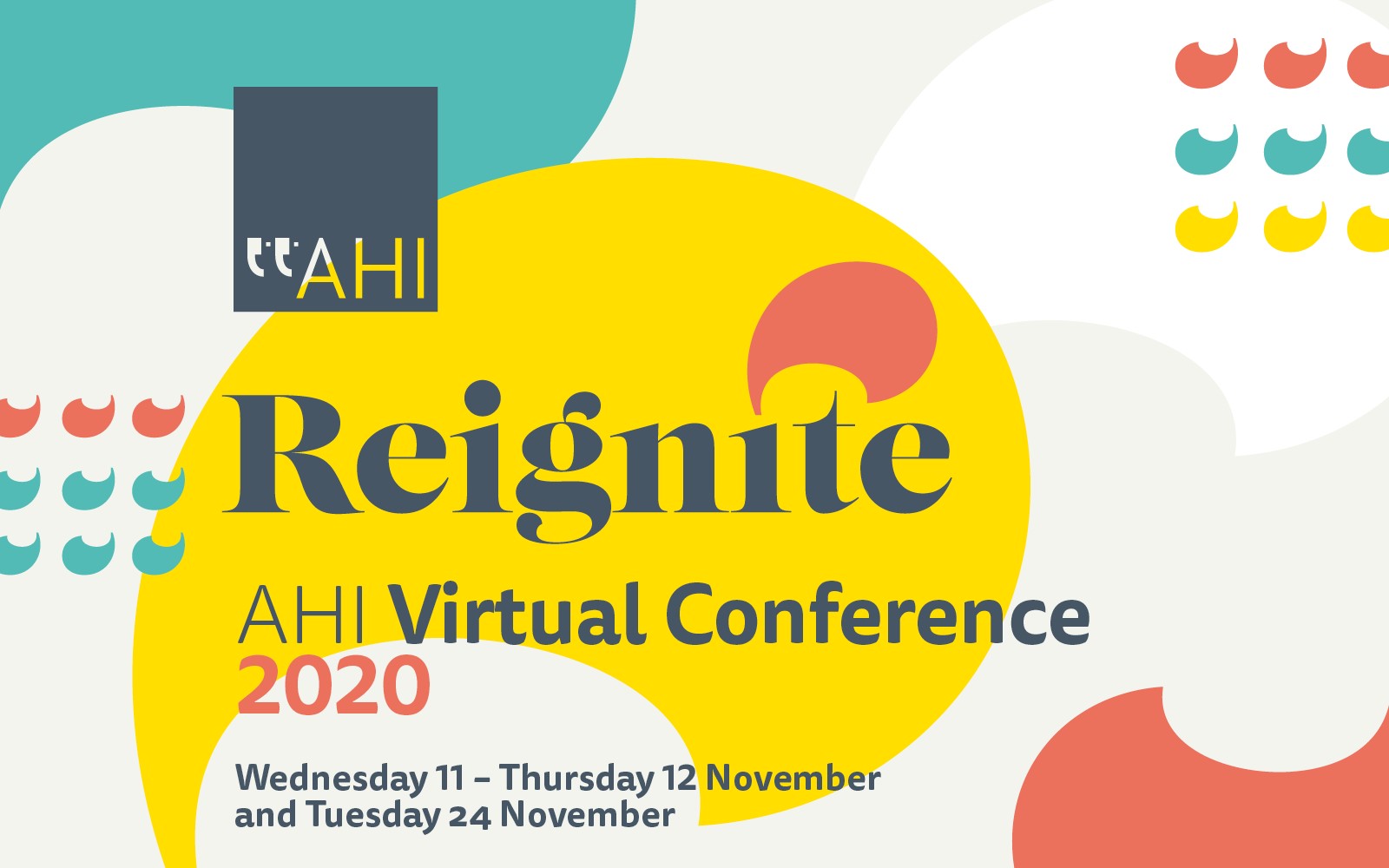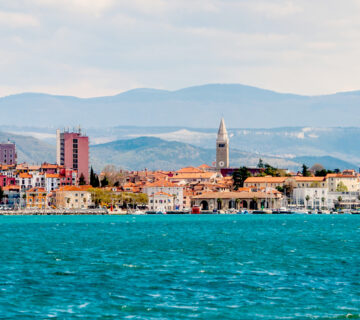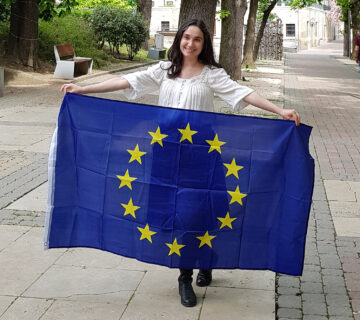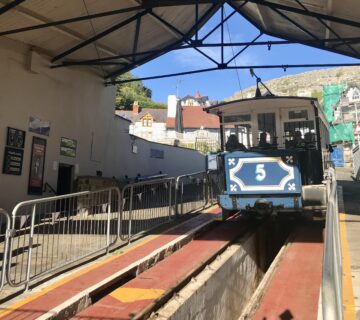IE’s online conference in May inspired and informed AHI, in the UK, which ran its annual conference as a virtual event in November.
In the end, its annual gathering was a very real event, generally applauded for its success in making best use of available technology as well as for its content.
AHI chose the Hopin platform, which is devised for the conference market and is more adaptable and effective than Zoom. It allowed delegates to visit Reception for information, a Help Desk for technical assistance, a Stage for keynote addresses and other plenary sessions, a Sessions area that acted as a series of break-out rooms, an Expo Booth area (live and recorded) for promotional purposes and a Networking function. During sessions, delegates could use the Chat function. Hopin worked well once we got the hang of it – which didn’t take long.
The conference was split into two parts. We quickly mastered the techy bits and were treated to three themed sessions, six keynote presentations in all, on the first day and a half (part one) and had a chance to revisit the themes two weeks later, with delegates invited to submit their own videos for discussion. This pioneering arrangement proved successful and allowed us in part two to enjoy several short video responses to the keynote speakers. The themes were partly driven by Covid-19 and partly by the furore over Black Lives Matter which, like the pandemic, is pan-world.
Stuart Frost of the British Museum and Jane Samuels of the Natural History Museum, both in London, led on Theme 1 – Covid-19, Challenges and opportunities for interpretation. Stuart explained that digital platforms and social media maintained public contact while they faced the complexities of opening a museum of many floors and galleries with one-way routes, new signage and staff training. Alongside this was the challenge of re-interpreting collections relating to Britain’s colonial past.
Jane’s talk focussed on the progress of her museum’s programmes for diversity and inclusion which are core values of its vision that both people and the planet should thrive. Like Stuart, she emphasised the impact on funding because of Covid-19 restrictions on visitors and the substantial absence of overseas visitors. The impact of Brexit was also of concern.
Theme 2 – Black Lives Matter and the response by heritage interpreters – brought to the stage Finn White and Kofo Ajala of the Bristol Black History Project. Finn described the importance of relating the great range of stories about the city’s black community to the community itself and to the wider public, and how they had used a panel of local experts and story writers to bring the project alive.
Kofo’s vivacious, spontaneous description of her involvement as a young person on the steering group demonstrated, she said, that everyone can have a voice in changing conventional directions of museums which are often a product of a colonial past. That she felt her voice and opinions would not usually be sought showed how many museums are ‘institutionally white’; she acknowledged that her voice was heard only because it was wanted for this project. In working towards a more inclusive society, interpretation can play a seminal role.
Paula Larsson and Olivia Durand, the two PhD students who conceived Uncomfortable Oxford, told us why they set up walking tours of the university city to challenge and expose racial inequality, gender and class discrimination and the legacies of empire. They have found ready audiences for their unconventional and imaginative exploration of Oxford and, during lockdown, developed a way of delivering the walking tours virtually.
James Harding-Morris and Fiona Groves addressed Theme 3 – New-found engagement with the natural world during Covid-19. James leads Back from the Brink, a collaborative project that aims to save England’s most threatened species from extinction through engaging and connecting people with nature. His talk will be remembered for the stunning photographs of insects, plants and animals, which have been made freely available for anyone to use for educational purposes.
Fiona Groves of the UK Wildlife Trusts rounded off this theme by discussing the challenges and opportunities of engaging the wider community with nature during the pandemic. Accessing wildlife-rich places not only develops care for the natural world but benefits physical and mental health, working for people of all ages and backgrounds.
Listening to the key speakers sparked off valuable ‘chat’ contributions to the debates (as they did during IE’s conference) and added to the value of each topical discussion. Delegates could also chat directly to others online and arrange individual video chats.
The follow-up day two weeks later brought a collection of short, personal videos that reflected the themes that formed the core of the conference. Perhaps the most thought-provoking was Marina Hauer’s presentation that asked us to look beyond ourselves and question our ethos ‘and collective blind-spots, to tell better, truer and more inclusive stories’.
A further benefit for AHI was that the Hopin platform allowed poll voting at AHI’s annual general meeting and collected data on attendance, use of the chat facility and visits to, and follow-ups from, the Expo Booths.
Evaluation forms are still being assessed but the immediate response during the wrap-up sessions indicated a high level of approval for the Hopin platform, Kev Theaker’s design of the programme and the ensuing debates and Astrid Krumins’ cheerful management of the whole conference.
The conference fee was kept as low as possible, at £50 for AHI members and £65 for non-members.
Michael Hamish Glen is an experienced wordsmith, based in Scotland, and formerly ran Touchstone Heritage Management Consultants. He creates effective and thought-provoking words to interpret natural and cultural heritage. Michael helped to found AHI in 1975 and is also a founding member of Interpret Europe. He can be contacted at: michael.hamish.glen@mhg.scot.
To cite this article:
Hamish Glen, Michael (2020) ‘Reignite: AHI offers new sparks for interpretation in a tough year’. In Interpret Europe Newsletter 4-2020, 29-30.
Available online: https://www.interpret-europe.net/fileadmin/Documents/publications/Newsletters/IE_newsletter_2020_4_winter.pdf




